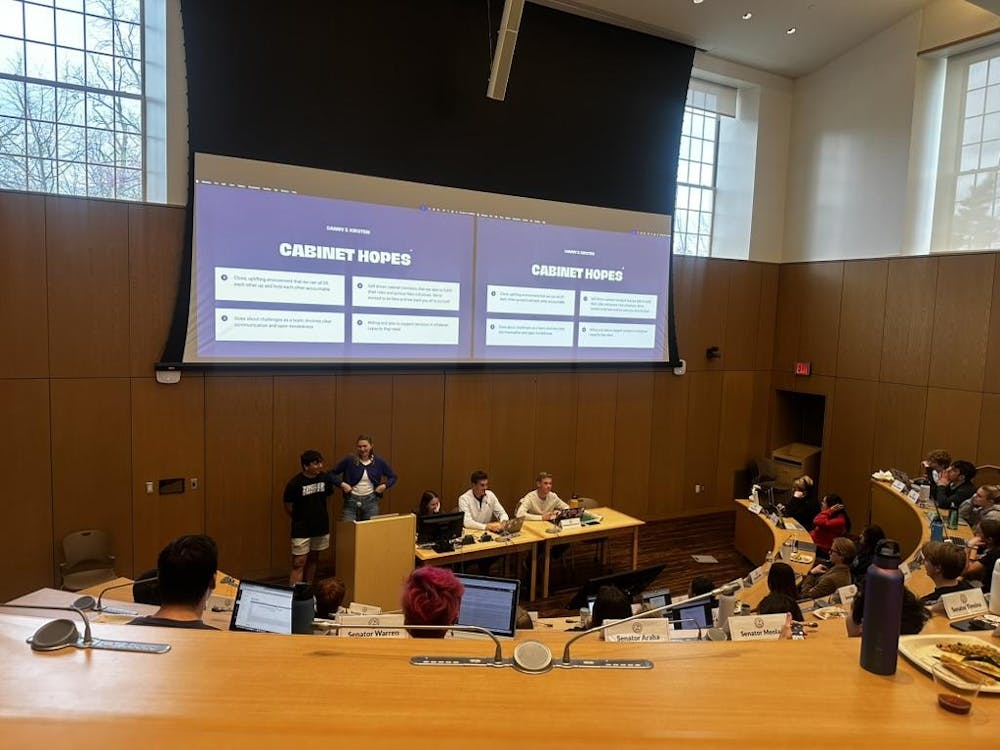In his first month as president, Donald Trump implemented significant changes in the United States. The day he took office to begin his second term, he signed a record number of 26 executive orders.
Trump was quick to implement the changes he campaigned on. He signed orders to rename the Gulf of Mexico to the Gulf of America (in which he was successful) and ban birthright citizenship, as well as many orders directly impacting the LGBTQ+ community.
Many of these actions are already taking effect. The Department of State’s website now refers only to LGB individuals instead of LGBTQ+, and individuals using the X gender marker on their passports are currently unable to renew them, with only male and female being recognized.
This comes after an executive order called “Defending Women from Gender Ideology Extremism and Restoring Biological Truth to the Federal Government,” which states: “It is the policy of the United States to recognize two sexes, male and female. These sexes are not changeable and are grounded in fundamental and incontrovertible reality.”
Gwendolyn Rhorer, a junior individualized studies major with a focus on sexuality education and women, gender and sexuality studies, said while she hasn’t seen any major Trump-related changes implemented at Miami University yet, she thinks his election has made people feel more bold.
“People think that the president has a lot more individual power than he actually does,” Rhorer said. “Being gay and trans is objectively more accepted than it was. Even within the last 10 years, we’ve come so far. People understand that sexuality and gender is a spectrum and that it’s not defined by little letters on our IDs. It’s not defined by little letters on our birth certificates.”
As someone who identifies as bisexual, Rhorer said she doesn’t fear for her own safety as much as she does for the safety of others, including those who identify as transgender. She emphasized how important she thinks it is to provide health and mental resources for the LGBTQ+ community, especially due to the suicide rate of transgender people.
According to The Trevor Project, an LGBTQ+ organization, suicide attempt rates for transgender and non-binary identifying children had increased by nearly 72% due to anti-transgender laws.
Spencer Mandzak, a senior public administration major and state chairman for the Ohio College Republican Federation, said Trump’s post-inauguration actions shouldn’t come as a surprise, because these policies were a huge part of his campaign.
“It’s a major platform of the Republican party, to remove identity politics out of the federal government, [where] they never should have been in the first place,” Mandzak said.
For Mandzak, Trump following through on his promises during the first 100 days of his presidency makes himself and other Republicans satisfied. He said he believes the 0rders regarding transgender individuals, including one prohibiting transgender women from participating in women’s sports, are in place to keep people safe.
“The stuff regarding not allowing minors to transition and keeping young men out of young women’s sports when they’re under the age of 18, I feel like those are things that a majority of Americans agree on,” Mandzak said.
Enjoy what you're reading?
Signup for our newsletter
On the contrary, Rhorer emphasized how despite these orders, she hopes transgender individuals can continue to express themselves freely.
In addition to Trump’s executive orders, Ohio’s Senate Bill 104 has also raised concern among LGBTQ+ individuals, such as Florian Siatkosky, a sophomore anthropology major who identifies as genderqueer.
“People who are very gender non-conforming [...] no matter if they were to go into a men’s restroom or a women’s restroom, people would still think, ‘oh, you don’t belong here,” Siatkosky said. “I think that just makes a very dangerous environment for everybody, because regardless of your gender identity, if somebody sees you that way, you don’t have control over that.”
According to the bill, students would have to use the bathroom that aligns with their assigned gender at birth, rather than the gender they identify as. Siatkosky has yet to see the effects of this or any of the executive orders at Miami but said that it wouldn’t be surprising if there were impacts on programs such as the Center for Student Diversity and Inclusion (CSDI).
Despite concerns, Mandzak said as Miami is a state institution and not federal, programs such as the CSDI will likely not close. However, he said that the decision to cut federal diversity, equity and inclusion funding is in place to ensure fair hiring practices.
“It’s removing the ability to hire these people strictly based on what their sexual preference is, which makes sense,” Mandzak said. “I mean, you should be hired into a position based on merit, not based on things that happen behind closed doors.”
Riley Nielsen, a junior computer science major who identifies as a transgender woman, said the CSDI provides a safe space for queer students at Miami, and while she isn’t too familiar with the bathroom bill herself, she has heard talk among other students and emphasized the importance of gender-neutral bathrooms at Miami.
“It’s really scary going into the other bathroom for the first time,” Nielsen said. “It’s terrifying, and so not having that little transition point is dangerous for people.”
In addition to being referred to as LGB on the Department of State’s website, other LGBTQ+ pages and resources have been disappearing from various federal websites as well. Google Calendar even followed suit, removing Pride Month from its default events.
“As a lot of these laws get passed and a lot of these executive orders get signed, a lot of people who have very negative views of the LGBTQ+ community will kind of be bolstered in those views and make it actively a more dangerous environment for a lot of queer individuals,” Siatkosky said.
Rhorer said she thinks these changes are a direct result of the presidential election, in which Trump won with 312 Electoral College votes and 49.8% of the popular vote.
“Americans saw all of that blatant racism, homophobia, xenophobia, all the things and still chose to vote for that,” Rhorer said. “I’m very angry that this is the situation that we’ve put ourselves in, and I’m very angry that we have to dig ourselves again.”




